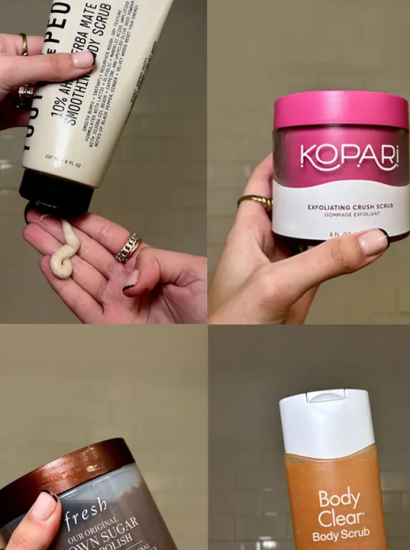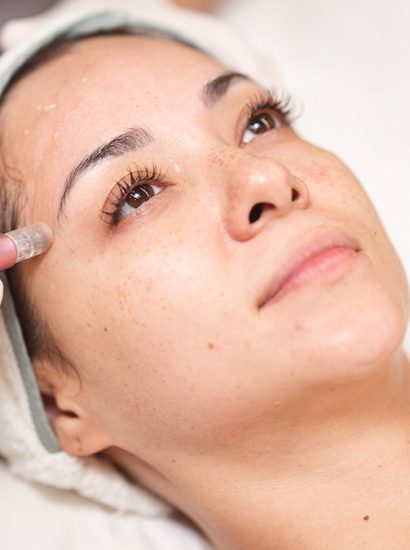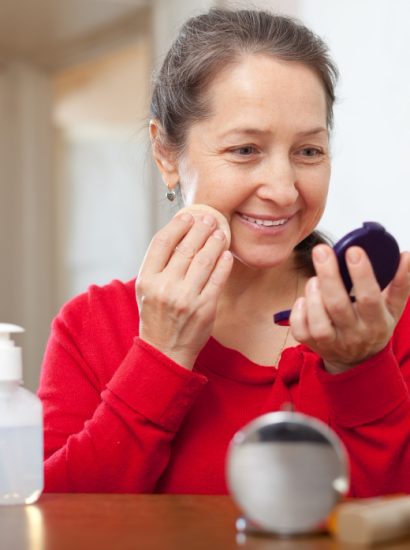Vitamin A cream, often hailed as a skincare powerhouse, has become a staple in many beauty routines. This potent ingredient is renowned for its ability to enhance skin health, offering a multitude of benefits that can significantly improve your complexion. From reducing wrinkles to combating acne, this cream can address various skin concerns, making it an essential product for anyone seeking healthier, more radiant skin. In this article, we will explore 10 surprising ways vitamin A cream can improve your complexion and how you can incorporate it into your daily skincare routine.
Vitamin A Cream Reduces Fine Lines and Wrinkles
One of the most celebrated benefits of vitamin A cream is its ability to reduce the appearance of fine lines and wrinkles. Vitamin A, particularly in the form of retinoids, promotes cell turnover and stimulates collagen production. Collagen is a crucial protein that maintains skin elasticity and firmness. By enhancing collagen synthesis, this cream helps smooth out fine lines and wrinkles, giving your skin a more youthful appearance.
Vitamin A Cream Fades Hyperpigmentation
Hyperpigmentation, such as dark spots and melasma, can be challenging to treat. However, vitamin A cream can significantly fade these discolorations. Retinoids in this cream accelerate the shedding of pigmented skin cells and promote the growth of new, evenly pigmented cells. This process leads to a more uniform skin tone and a brighter complexion over time.
Vitamin A Cream Treats Acne and Prevents Breakouts
Vitamin A cream is a game-changer for those struggling with acne. It works by unclogging pores, reducing inflammation, and preventing the formation of new acne lesions. Retinoids regulate skin cell turnover, preventing dead skin cells from blocking pores. Additionally, vitamin A cream can reduce sebum production, minimising the oily environment that acne-causing bacteria thrive in. Regular use of this cream can lead to clearer, smoother skin.
Vitamin A Cream Improves Skin Texture
Rough, uneven skin texture can be a source of frustration. Vitamin A cream helps improve skin texture by promoting the shedding of dead skin cells and encouraging the growth of new, healthy cells. This process results in smoother, softer skin with a refined texture. Regular exfoliation with this cream can make your skin feel more supple and look more radiant.
Boosts Hydration Levels
While it might seem counterintuitive, this cream can help boost your skin’s hydration levels. Retinoids enhance the skin’s barrier function, reducing transepidermal water loss. This means your skin can retain moisture more effectively, preventing dryness and dehydration. Well-hydrated skin appears plumper, healthier, and more resilient.
Minimises Pore Size
Large pores can be a cosmetic concern for many. This cream can help minimise the appearance of pores by increasing cell turnover and preventing the buildup of dead skin cells and debris. When pores are less clogged, they appear smaller and less noticeable. Consistent use of the cream can lead to a smoother, more refined complexion.
Enhances Skin Tone
An uneven skin tone can detract from your overall complexion. This cream promotes a more even skin tone by encouraging the growth of new skin cells and fading areas of hyperpigmentation. As a result, your skin looks more uniform and radiant. This improvement in skin tone can make a significant difference in your overall appearance.
Protects Against Environmental Damage
Vitamin A cream offers some protection against environmental damage, such as UV radiation and pollution. Retinoids can help repair damage caused by free radicals and enhance the skin’s natural defence mechanisms. While this cream should not replace sunscreen, its protective properties can complement your overall skincare routine, providing an added layer of defence against environmental stressors.
Reduces Redness and Inflammation
Inflammation and redness can be symptoms of various skin conditions, including acne and rosacea. This cream has anti-inflammatory properties that can help soothe irritated skin and reduce redness. By calming inflammation, it can improve the overall appearance of your complexion, making it look clearer and more even-toned.
Promotes Wound Healing
Vitamin A is essential for the skin’s natural repair processes. The cream can accelerate wound healing by promoting cell regeneration and reducing inflammation. Whether you’re dealing with minor cuts, scrapes, or post-acne marks, this cream can help speed up the healing process and reduce the risk of scarring.
Conclusion
Vitamin A cream is a versatile and powerful skincare product that can offer numerous benefits for your complexion. From reducing wrinkles and fading hyperpigmentation to treating acne and improving skin texture, this cream can address a wide range of skin concerns. By incorporating it into your daily skincare routine, you can achieve healthier, more radiant skin. Remember to start with a lower concentration and gradually increase usage to minimise potential irritation. With consistent use, you’ll be able to unlock the full potential of vitamin A cream and enjoy a more youthful, glowing complexion.
FAQs
1. How often should I use vitamin A cream?
Start by using this cream once or twice a week, gradually increasing the frequency as your skin builds tolerance. Eventually, you can use it every other night or as directed by your dermatologist.
2. Can I use vitamin A cream if I have sensitive skin?
If you have sensitive skin, it’s essential to start with a lower concentration and apply it less frequently. Consider using it every third night and follow up with a soothing moisturizer to minimise irritation.
3. When will I start seeing results from using vitamin A cream?
Results can vary, but most people start noticing improvements in their skin’s texture and tone within 4 to 6 weeks of consistent use. More significant changes, such as reduced wrinkles and hyperpigmentation, may take several months.
4. Can I use vitamin A cream with other skincare products?
Yes, but be cautious when combining this cream with other active ingredients, such as AHAs, BHAs, or Vitamin C, as they can increase the risk of irritation. It’s best to alternate their use or consult with a dermatologist for a personalised routine.
5. Is vitamin A cream safe to use during pregnancy?
It’s generally recommended to avoid using retinoids, including this cream, during pregnancy and breastfeeding. Consult with your healthcare provider for alternative skincare options that are safe during this time.
Also read: CLINIQUE BLACK HONEY: 6 ICONIC MOMENTS IN BEAUTY HISTORY





